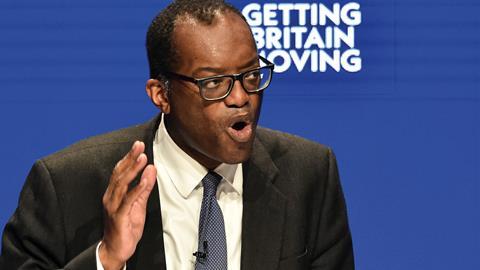Law firms are insulated from economic shockwaves – until banks, other lenders and investors get cold feet. And profitable areas of work such as M&As could be hit as corporate clients retrench
The good news for law firms from this month’s tsunami of bad economic news is that any negative effects will be slow to materialise. Assuming practices are already well run, the likelihood that rising interest rates and runs on the pound will trigger a meltdown is low. This sector, for now at least, appears well-positioned to weather the storm.
But that is not the same as saying the law is recession-proof. Instead, experts agree this is a slow-burn process that sees banks, other lenders and investors gradually get cold feet and the type of work that can be most profitable dries up – with consequences for law firms further down the line. Lehman Brothers collapsed in 2008 amid the sub-prime mortgage crisis, prompting an almost immediate downturn in the UK – but it was not until 2010 and 2013 that the two biggest legal sector casualties in the UK (Halliwells and Cobbetts respectively) went the same way.
Tony Williams, founder of Jomati Consultants, said the most relevant issue will be a squeeze on the availability of bank finance. Most borrowing will be via partner capital loans which are off balance sheet, so an interest rate rise may not have a huge impact. ‘For those with significant debt an issue may be their loan covenants, especially if profits start to fall and there are significant partner departures,’ he said. ‘Traditionally law is a lagging indicator so firms feel significant pain six to nine months after the start of a technical recession, as the initial recession-produced work dries up and before M&A resumes. Much will depend on the depth and severity of any downturn.’
Companies being forced into change rather than choosing to merge will be a problem for the lawyers who advise them. M&A is traditionally very profitable, explained Williams, and simple pre-pack administrations much less so. Much will depend on a firm’s practice mix – for example, those heavily reliant on commercial property may suffer more than those who retain other areas of work.
A survey of businesses earlier this month by wealth management and professional services group Evelyn Partners found that 69% have postponed merger plans and 48% have ruled out international expansion. Half of the businesses polled said there was a possibility of bankruptcy or insolvency, with 15% saying this was highly likely. As with the previous downturn, law firms will suffer a knock-on effect from the economy hitting the buffers.
Giles Murphy, head of professional services strategy at Evelyn, said any increase in interest rates is likely to impact the wider economy – and by implication the legal sector – but that law firms are better protected than most. ‘Levels of debt taken out by firms are generally relatively low compared to some sectors, but there are of course firms who rely quite heavily on borrowings, particularly those firms that have poor lock-up management and therefore perennially seem to be living off an overdraft,’ he said.
‘Of course, a lot of firms ask their equity partners to invest capital into the business and in most cases, particularly for more junior EPs the capital is generally borrowed, so any increase in interest rates will make this borrowing more expensive.
‘However, law firms, particularly those with large private client bases, are naturally hedged against an interest rate rise, as any rise increases the income they can potentially earn on client money balances that they hold.’
In the past week, the Financial Times has reported that UK law firms’ transatlantic growth has been hit by the crash in sterling, making it difficult to hire top partners and triggering an exodus to US rivals.
Ultimately, in a country where the economy suffered a 0.3% fall in GDP in August, there will always be concerns about any sector. But Office for National Statistics figures show that, while legal sector turnover also fell in that month, it was 15.3% higher than in August 2021.
Julie Norris, regulatory partner at London firm Kingsley Napley, said all eyes will now be on September’s figures to see if the sector is holding up. ‘Either way, law firm leaders no doubt have economic and political uncertainty at the forefront of their planning.’





































No comments yet